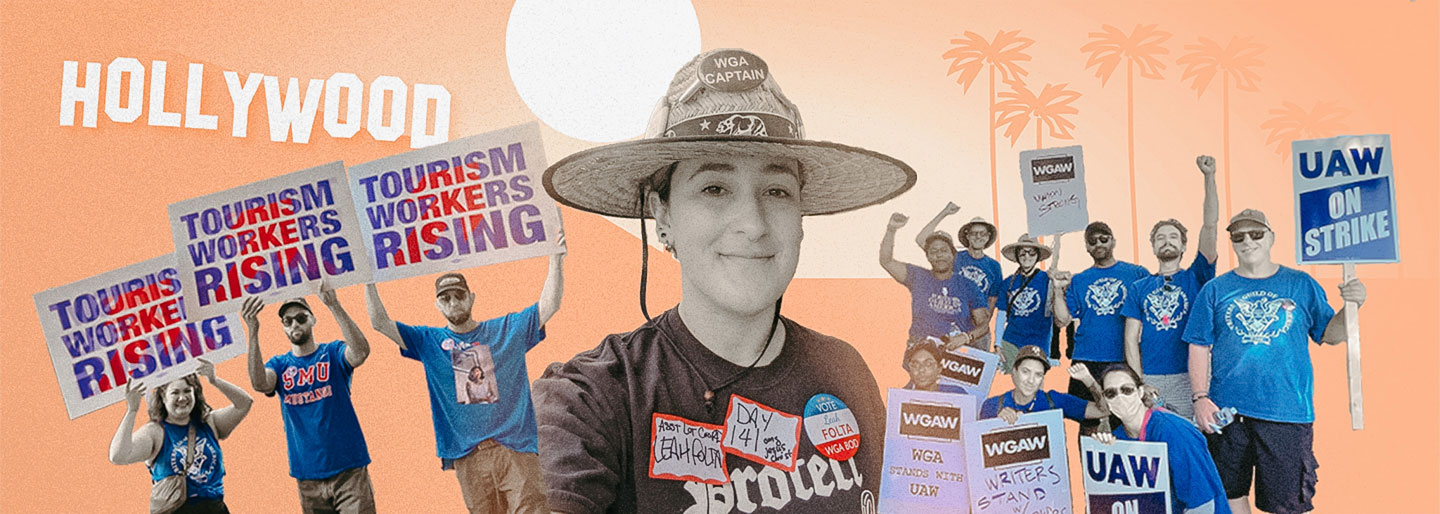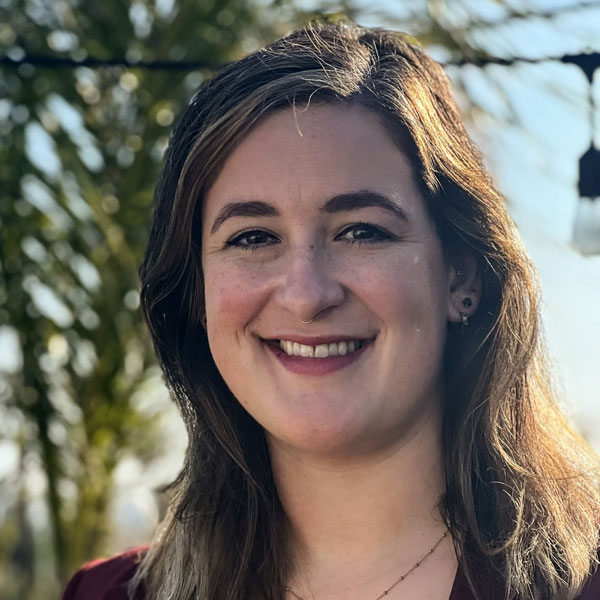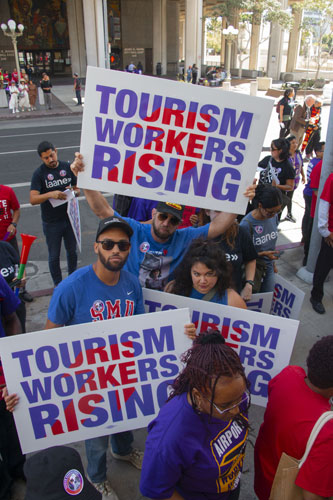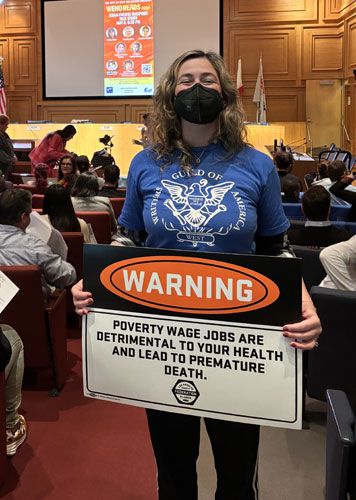Captain Leah Folta advocates for other workers as part of the WGAW Solidarity Committee.
1/23/2026 • Evan Henerson
His Name is Reo and He Can Spin a Tale
2026 TV Laurel Award Honoree Don Reo reflects on his career.

Captain Leah Folta advocates for other workers as part of the WGAW Solidarity Committee.
WGAW member Leah Folta became a captain in her very first writers’ room in 2019 on the Disney show Bunk’d. Folta said she “lucked into” the job because it occurred at the start of the Guild’s two-year agency campaign. Instead of taking 10 percent commission from their clients, talent agencies were taking direct payments from studios known as “packaging” fees. In addition, agencies began forming their own production entities and hiring and employing their own clients. These practices, the Guild stated in its action, were a flagrant conflict of interest that contributed to declining writer conditions and pay.

Folta described being thrust into that environment as “like being in a Western movie and walking into a room where everybody’s already in a standoff.” However, she added, “It was an incredibly interesting time to learn about the Guild and a great reason to get involved in the nuances of everything so that I could report back to all the other writers I worked with.”
That experience paved the way for Folta to become a lot coordinator at Paramount during the 2023 WGA strike, and subsequently active with the Guild’s Solidarity Committee, which emerged after the 2023 WGA and SAG-AFTRA strikes that were directly supported by thousands of members of other unions.
Cross-industry solidarity was visible throughout the city during the “hot labor summer” with hotel workers picketing at the W Hollywood, only a few blocks down from actors and writers were picketing.

One recent action was sparked a few months ago when former captain and recently elected WGAW Board Member Chris Hazzard alerted the committee that the teachers at his son's school were going to be doing a rally to protest budget cuts in their district.
The Solidarity Committee mobilized, sending out an invitation from Hazzard, and members turned out to stand with the teachers and staff outside LAUSD headquarters in downtown Los Angeles.
And just last month, the committee received an invitation from the Los Angeles Alliance for a New Economy (LAANE, to attend a Los Angeles City Council meeting to support LAANE’s policy to raise the minimum wage for airport and hotel workers in LA to $25 an hour. Members turned out in their WGAW shirts to support the action.
Building relationships with labor allies resonated with Folta, and it was why she chose to become involved in the committee. She spoke at a West Hollywood City Council meeting this spring in support of the UNITE HERE workers who were fighting to maintain the city’s minimum wage and to ensure a new hotel with some living spaces would have designated affordable housing.

A hallmark of good unions, in general, is not only fighting for what we deserve but a smart assessment and application of our leverage.
- Leah Folta
“I was able to speak at that meeting from the perspective of not only a Guild member who really admired UNITE HERE and supported them, but because I know how urgent their needs are and how overdue the changes are,” said Folta.
At the meeting, Folta noted that, like many WGAW members, she has and continues to work in the service industry. “That’s why I think making [UNITE HERE workers’] jobs more livable directly impacts our union members as well,” she said.

And, as a West Hollywood resident, Folta said she’s lucky and grateful to have lived in a rent-controlled apartment for the last 10 years. “I lucked into affordable housing,” she said, “and I think everybody deserves that.”
“A hallmark of good unions in general is not only fighting for what we deserve, but a smart assessment and application of our leverage,” Folta said. “I use the word ‘idealism’ in describing what I love about the WGA and what made me fall in love with it, but I've never felt that our actions are careless or based solely on hopes and feelings.”
Folta’s desire to help others comes from several places, including making the leap from assistant to writer, and while she wasn’t one of the people who was part of the IATSE campaign, “I was so grateful for the people who organized us because the immediate difference in pay and benefits was stark,” she said.
She also credits the union for giving her a “safe, reassuring experience” during her time as an assistant. “It built so much trust in me with the idea of a union in general, and grateful for the writers’ assistant and script coordinator organizers who were braver, more knowledgeable, and more forward-thinking than I was at that time,” she said.
That entire experience, she said, “did cement for me that everyone can help and make a difference. It made me eager to pitch in when the opportunity came up in the WGA.”
Growing up in a working-class family in Orange County, Folta and her family did not have health insurance when she was a kid.
“My trajectory and economic mobility were made possible by public assistance and lucky breaks—from free school lunches to HUD assistance to an excellent public school to need-based financial assistance for college and rent control,” she said. “Everyone deserves support like that.”
Another contributing factor, Folta added, is that she, like many writers, grew up on TV and movies, learning a lot about life from them. As such, she said, “I've always felt conscious of how much that can shape everyone’s vision of themselves, how they perceive themselves and other people. I believe that at the same time, while being entertaining as writers, we should be treating that with care.”
It’s why, she added, she sees her platform as “a gift, so lending our union power [to others in need] feels like an extension of that to me.”
The Solidary Committee is continuously recruiting members willing to show up to lend their support for other unions’ struggles. Email WGAW Member Organizing.